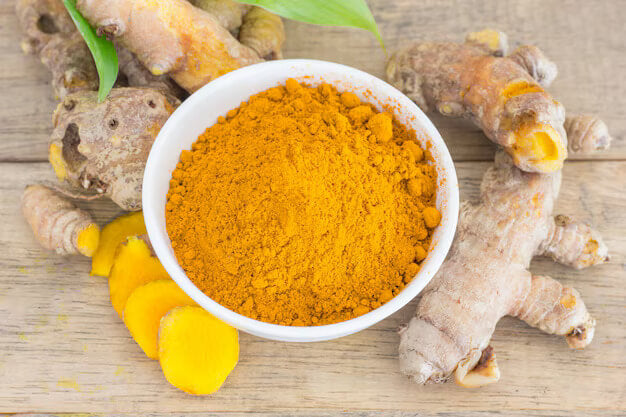Turmeric Supplements for Inflammation: Benefits & How to Use Them
Posted by RACHITA RAVI

Inflammation is a natural defense mechanism of the body, but when it becomes chronic, it can contribute to conditions such as arthritis, cardiovascular diseases, and autoimmune disorders. Many individuals turn to turmeric supplements for inflammation as a natural remedy, thanks to their powerful anti-inflammatory and antioxidant properties. The key compound in turmeric, curcumin, has been widely studied for its ability to support overall wellness and pain relief. But how effective is turmeric in managing inflammation?
In this article, we explore the benefits, usage, and optimal ways to incorporate turmeric into your daily routine for maximum anti-inflammatory effects. For a deeper understanding of inflammation and its impact on health, check out our guide on Inflammation Basics and the Role of Diet and Exercise.
Turmeric Benefits for Inflammation
Turmeric has been a staple in traditional medicine for centuries, and modern research confirms its impressive health benefits:
- Reduces Chronic Inflammation: Curcumin inhibits NF-kB, a molecule that triggers inflammation, helping to lower chronic inflammation levels.
- Supports Joint Health: Many people take turmeric supplements for joint pain, as curcumin has been shown to alleviate discomfort associated with arthritis and osteoarthritis.
- Boosts Antioxidant Activity: In addition to reducing inflammation, turmeric enhances the body's antioxidant defenses, protecting cells from damage.
- Promotes Digestive Health: Chronic gut inflammation can disrupt digestion, but turmeric helps maintain gut balance and reduces inflammation.
- Enhances Muscle Recovery: Athletes and active individuals benefit from turmeric’s ability to ease soreness and promote faster recovery.
- Supports Heart Health: By reducing inflammation in blood vessels and improving circulation, turmeric may lower the risk of heart disease and high blood pressure.
Does Turmeric Help with Inflammation?
Scientific studies suggest that turmeric is nearly as effective as some anti-inflammatory medications—but without the harsh side effects. However, turmeric has low bioavailability, meaning the body struggles to absorb it efficiently. To maximize its effectiveness, it should be taken with black pepper (which contains piperine) or combined with healthy fats to enhance absorption. Learn more about identifying and addressing inflammation in our Anti-Inflammatory Guide: 5 Red Flags and Your Action Plan.
Best Ways to Take Turmeric for Health
To get the most out of turmeric for inflammation relief, consider these consumption methods:
- Turmeric Supplements: Opt for standardized turmeric supplements with added piperine for better absorption.
- Turmeric Tea: Brewing fresh turmeric root or powdered turmeric with hot water and black pepper creates a soothing anti-inflammatory beverage.
- Golden Milk: A blend of turmeric, milk (dairy or plant-based), black pepper, and honey provides a delicious, therapeutic drink.
- Turmeric in Food: Adding turmeric powder to soups, curries, and smoothies is an easy way to reap its benefits naturally.
- Liquid Extracts: Turmeric tinctures or liquid extracts can be mixed with water or juice for quick absorption.
How Long Does Turmeric Take to Work for Inflammation?
The time frame for experiencing turmeric’s benefits varies by individual. Some may notice improvements within days, while others require 4–8 weeks for significant results. Factors influencing effectiveness include:
- Dosage & Frequency: Higher doses and consistent intake lead to better outcomes.
- Bioavailability: Consuming turmeric with black pepper and fats enhances absorption.
- Severity of Inflammation: Individuals with chronic inflammation may need more time to experience relief.
Choosing the Right Turmeric Supplement
When selecting a turmeric supplement for inflammation relief, consider the following factors:
- High Curcumin Content: Look for supplements with at least 95% curcuminoids for optimal benefits.
- Added Bioavailability Boosters: Supplements containing piperine (black pepper extract) enhance absorption.
- Third-Party Testing: Choose brands that undergo purity and potency testing for safety and efficacy.
- Synergistic Ingredients: Some supplements combine turmeric with ginger, boswellia, or ashwagandha for added anti-inflammatory support.
Are There Any Side Effects of Turmeric?
While turmeric is generally safe, excessive intake can cause mild side effects, including:
- Digestive Issues: High doses may lead to bloating, diarrhea, or constipation.
- Blood Thinning: Turmeric has natural anticoagulant properties and should be used cautiously by individuals on blood thinners.
- Allergic Reactions: Some people may experience mild allergic reactions to turmeric.
To avoid adverse effects, start with a small dose and increase gradually based on your body’s response.
Conclusion
Turmeric is a powerful natural remedy for inflammation and overall health. Whether taken as a supplement, in tea, or incorporated into daily meals, it offers numerous benefits for individuals dealing with chronic inflammation and joint pain. Results may take time, but consistent use is key to achieving long-term relief.
Enhance your wellness journey with high-quality supplements and expert guidance. Visit The Wellness Collective for premium turmeric supplements designed to help you achieve optimal health naturally.
TAGS:


